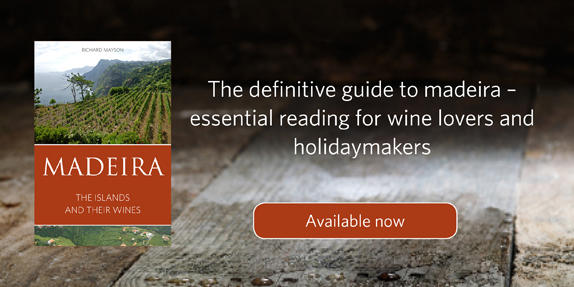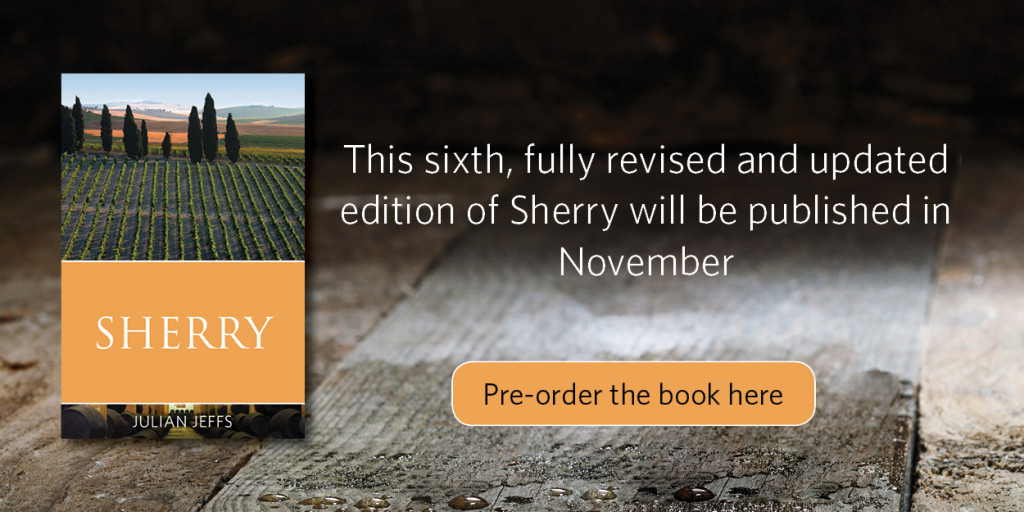Classic Wine Library
My, my, at Waterloo Napoleon did surrender
18 June 2015 by Catherine Holdsworth in Classic Wine Library, Current events, Wine and spirits
 …which means he never got to drink the madeira that he had purchased on his way. Most people would stop off at the petrol station on a long journey, but in times of war, it would seem the French General was tempted by a few bottles of madeira that he purchased in Funchal.
…which means he never got to drink the madeira that he had purchased on his way. Most people would stop off at the petrol station on a long journey, but in times of war, it would seem the French General was tempted by a few bottles of madeira that he purchased in Funchal.
Today marks the 200th anniversary of the Battle of Waterloo and what have we learnt since then? Well, firstly, you can make a hit song out of a French navy’s defeat, rubber boots will always be in fashion and the Duke of Wellington is still a very popular military leader. You may wish to commemorate today by re-enacting the battle, or by reading many military history books, or even just listening to ABBA, the only palindromic band to be a success.
Infinite Ideas, however, are huge fans of the pub. We love any chance to celebrate and today seems as good as any. We can’t guarantee that we’ll be ordering a glass of madeira in our first round, but we’re sure it would be appropriate to toast our victory over the French than sipping on a lovely glass.
This legendary wine accompanied napoleon when he called in at Funchal en route to St. Helena in 1815. it was never drunk by the exiled Emperor, nor was it officially paid for, but the British consul henry Veitch was apparently given some gold coins by napoleon in exchange. These were buried beneath the foundation stone of the anglican church (church of the holy Trinity) in Funchal, the building of which was supervised by Veitch. Two years after Napoleon’s death the wine was returned to Veitch, who sold it on to Charles Ridpath Blandy. The wine was left to Dr Michael Grabham who was born in the year the wine was bottled (1840) and whose father was born in 1792. Two dozen bottles were bought by the saintsbury club in London. The following poem by Martin Armstrong, one of the founding members of the Saintsbury Club in London, describes the episode:
On a certain Madeira Boal 1792
The doomed and broken Bonaparte
To thaw the ice that bound his heart
Bore from Madeira to his jail
Islanded twixt sea and gale
The barreled juice of grapes that grew
Twenty-three years ere Waterloo.
But Death was urging to his bed
Him who so richly Death had fed;
Aye, that more grim Napoleon
Was closing icy fingers on
The little body and great brain,
Bidding the haughty lip abstain
From comfort of the anodyne.
The weakening hand put by the wine,
And when at last the hand fell slack,
Homeward the cask was carried back
Unbroached, and when the wine had stood
Nigh half a century in wood,
They bottled it and duly laid Cellared in its native shade.
The heart that hoped the world to gain
A century in dust has lain.
Yet we of these late times may sip
The wine forbid his dying lip.
Madeira: what a wonderful place to go on holiday
8 June 2015 by Catherine Holdsworth in Classic Wine Library, Wine and spirits
The UK has finally decided that it wants to join in with the rest of the northern hemisphere and be all summery. We no longer have to sit in the office chanting ‘Winter is coming’ while watching the rain pour down the windows. So we’re all about planning our summer break and where better to get inspiration than from our own bookshelves?
Madeira: the islands and their wines offers a rich and detailed history of the islands and includes excellent tips for when you holiday there yourself. Lonely Planet eat your heart out! What’s better than a book that immerses you in the culture of its pages? Catherine is seriously rethinking her trip to Madrid and perhaps needs to take a ‘work placement’ among the vines of Madeira!
Did you know that because Madeira is so hilly that most of the vineyards are on a slope? Over hundreds of years, the volcanic islands have been cultivated to produce a very special type of wine. Make sure that you’re on solid ground, though as fortified wine can hit you quicker than the average bottle.
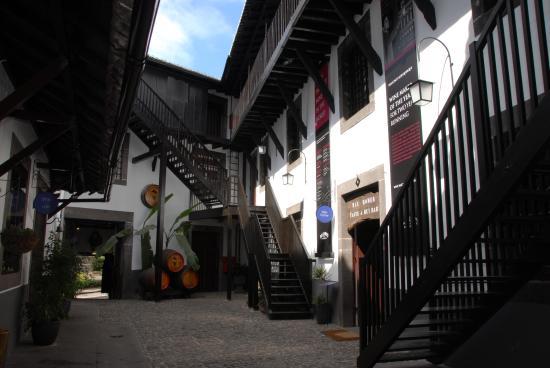
Given that Madeira is basically a very large volcano, there are lots of lava pools to enjoy, hot springs to take a dip in or, if you’re concerned about lava after that wonderful Hollywood classic, Volcano, perhaps you’d prefer to lounge on the beaches, which we think look very nice indeed!
However, don’t forget when travelling to this fantastic island that while there you can literally drink the island! Madeira is growing in popularity and where better to savour the taste than at the source. What is a holiday for, if not to relax and we can’t think of a better way to do that than a vineyard tour and wine tasting. (Catherine recently went to one in Canada, yes, Canada, and can attest that this is an excellent way to spend a holiday). Why not book yourself a wine tour and enjoy what really makes the island special. For hundreds of years, wine has been made on the islands, gaining a global reputation and popularity. Touring the wine lodge of Blandy’s, one of the most successful producers of Madeira, in Funchal will allow you to immerse yourself in the wine and the history of the islands. It should certainly be on your list of things to do when on holiday.
There’s always a come-down when one arrives back in (usually rainy) Britain after a fantastic holiday but at least after visiting Madeira, you can pick up a bottle from your local supermarket and relive the summer once again.
Madeira: the American connection
28 May 2015 by Catherine Holdsworth in Classic Wine Library, Wine and spirits
You may have heard of madeira cake and you might even have been to Madeira on holiday, but what do a few islands off the coast of Africa have to do with America? Well, quite a lot actually. Did you know that it was George Washington’s favourite drink? Did you know that it was used to toast the American Independence in 1776? You could say that madeira is as American as hamburgers and Dolly Parton.
Infinite Ideas recently went to the Big Fortified Tasting in London and we were lucky enough to try some very exceptional madeira (one glass was enough for Catherine as she might not have made it back to Oxford!). The history of this timeless drink is incredibly rich and embedded in many cultures, not just that of Portugal and the surrounding areas.
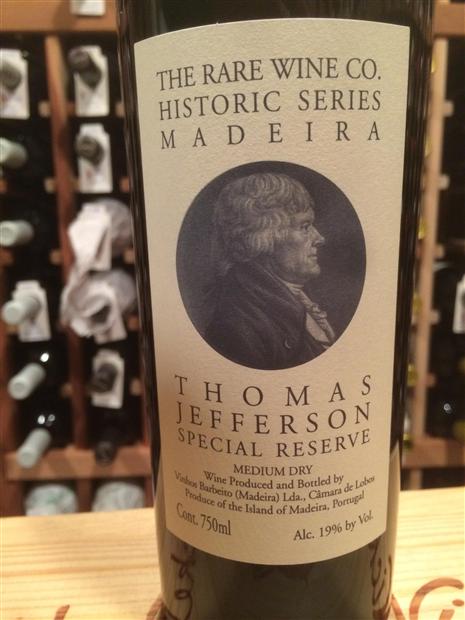 So, madeira and America, eh? We certainly didn’t see that one coming. Thomas Jefferson once remarked, “it is a wine which I do not drink, being entirely too powerful”, well that power was enough to spark a drinking revolution in the USA, which it is fair to say, has reverberated around the world. We’ve all been for happy hour cocktails, some of us may have even hosted our very own cocktail parties at home, well madeira parties paved the way for this popular social occasion.
So, madeira and America, eh? We certainly didn’t see that one coming. Thomas Jefferson once remarked, “it is a wine which I do not drink, being entirely too powerful”, well that power was enough to spark a drinking revolution in the USA, which it is fair to say, has reverberated around the world. We’ve all been for happy hour cocktails, some of us may have even hosted our very own cocktail parties at home, well madeira parties paved the way for this popular social occasion.
In his new book, Madeira: the islands and their wines, Richard Mayson writes about the origin of madeira parties:
Until the end of the nineteenth century, madeira was the most prestigious wine in north america. collectors held madeira parties to share their knowledge and show off their wines. These were common among high society, whose members lived on the eastern seaboard in cities from Boston to New Orleans including Philadelphia, Baltimore, savannah and charleston. Madeira parties generally took place in the late afternoon with eight to a dozen men sharing and discussing perhaps half a dozen wines over a period of two or three hours. One of the most lavish madeira parties was hosted in Baltimore by David Thomas in 1899 when twenty-six madeiras ranging in date from 1805 to 1854 were served in one sitting. This is recorded in detail by Emanuel Berk in a self-published pamphlet entitled A Century Past, A Celebration of the Madeira Party in America. The madeira party died out, along with the popularity of madeira wine, as the cocktail took over in the early years of the twentieth century. It lives on in name only, with a range of wines produced by Barbeito for the US market named after the cities where the parties took place. However, since 2012 a group of international madeira aficionados have been assembling annually in New York to taste and discuss twenty rare and venerable wines, some of them from old American collections.
Madeira by Richard Mayson
22 May 2015 by Catherine Holdsworth in Classic Wine Library
New book on the wines of Madeira is essential reading for holidaymakers and wine lovers
They say that a fine wine gets better with age and of no wine is this more true than it is for madeira. Not only does madeira require cask-ageing in order to acquire its unique ‘maderised’ taste but, unlike most other wines, it retains that taste for many years, even several centuries. For heat and air, the sworn enemies of most wines and winemakers, conspire to turn Madeira into one of the most enthralling of the world’s wines as well as the most resilient. Madeira wines from the nineteenth and even the eighteenth centuries still retain an ethereal, youthful gloss. Once the cork is removed, the wine comes to no harm, even if the bottle is left open and on ullage for months on end. If ever there was a wine to take to a desert island this is it.
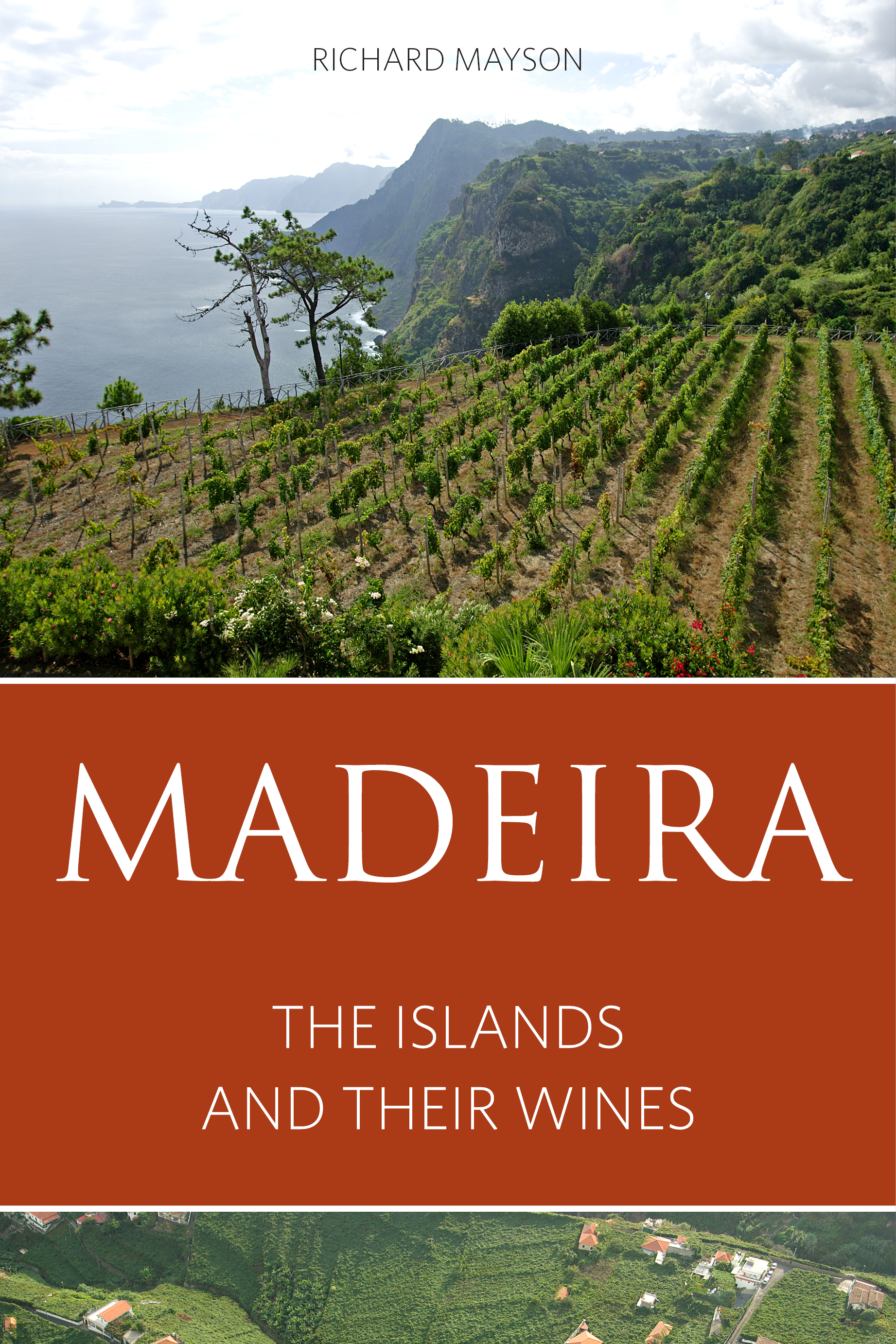 Award-winning wine writer Richard Mayson, the author of Madeira: the islands and their wines (published on 22 May 2015), has been exploring the world of madeira for twenty-five years and describes it as ‘one of the world’s most mystical and miraculous wines’. Madeira is indeed a much-loved fortified wine with a history that is as deeply embedded in American as European culture (for instance, did you know that it was George Washington’s favourite drink and used to toast the American Independence in 1776?) and it’s currently making a comeback. In this timeless book on an ageless wine Mayson takes the reader on a thrilling journey through the rich and turbulent history of the islands of Madeira, from its discovery by the Moors in the fourteenth century to the present day and its draw as a popular tourist destination.
Award-winning wine writer Richard Mayson, the author of Madeira: the islands and their wines (published on 22 May 2015), has been exploring the world of madeira for twenty-five years and describes it as ‘one of the world’s most mystical and miraculous wines’. Madeira is indeed a much-loved fortified wine with a history that is as deeply embedded in American as European culture (for instance, did you know that it was George Washington’s favourite drink and used to toast the American Independence in 1776?) and it’s currently making a comeback. In this timeless book on an ageless wine Mayson takes the reader on a thrilling journey through the rich and turbulent history of the islands of Madeira, from its discovery by the Moors in the fourteenth century to the present day and its draw as a popular tourist destination.
Mayson describes the physical character of the archipelago, the state of the vines and vineyards and the way in which the wines are made. A guide to current producers follows along with a detailed appraisal of their range of wines. There is also a chapter for collectors of older wines, many from shippers that no longer exist but whose names live on in bottles of wine that are still found in cellars all over the world. Wines dating as far back as the eighteenth century are featured in the book, along with quality appraisals. There is a short section on the language of tasting madeira as well as information on buying, keeping and serving the wines. The book closes with a travel guide for anyone visiting the islands.
This is the latest book in Infinite Ideas’ highly popular Classic Wine Library and is an essential addition to the shelf of any wine lover.
Madeira: the islands and their wines is available now, if you wish to order from Infinite Ideas, call +44 (0)1865 514888 or email info@infideas.com
Harper Lee: breathing life into a classic
4 February 2015 by Catherine Holdsworth in Book publishing, Classic Wine Library
If you haven’t read Harper Lee’s To Kill a Mockingbird then what have you been doing all these years? If there ever was a ‘modern classic’ then this is it. Set in Alabama and focussing on the childhood Jem and Scout Finch, the children of local lawyer Atticus, the reader is shown the absurdity of racism through the innocent eyes of children.
Largely hailed as a champion of the Civil Rights Movement and still incredibly relevant today with regards to the situation in Ferguson, USA, Lee’s novel has, until now, been a one hit wonder. So successful was her novel that not only did Lee need to work again, but the attention of writing such a groundbreaking novel was too much for the author. Many people, until yesterday, presumed that she was a man:
‘Isn’t Harper Lee a man?’ – best To Kill a Mockingbird sequel reactions http://t.co/7jkLAGdW9T pic.twitter.com/QZpb1kLn6k
— Independent Books (@indybooks) February 4, 2015
Lee, the 88-year-old author has announced that this year she will be publishing a follow-up to her novel entitled Go Set a Watchman, focussing on Scout’s return to her home town as a young woman. Most people seem to be excited about this, but there are others who worry that the new publication will detract from the ‘classic’ status of its predecessor. As with any sequel, there is always the anticipation that it has to live up to the first one. Look at how the Star Wars ‘prequels’ were butchered, or how Hangover II just didn’t have the impact of the first one. When you write a novel as good and seminal as To Kill a Mockingbird, do you ever get a second chance to do it again?
Take, for example, Bob Dylan, whose best work is arguably his early 60s albums like The Freewheelin’ Bob Dylan and Like a Rolling Stone. Though still making music, Dylan has lost the magic of his early career. Perhaps this is due to the change in zeitgeist, we no longer have such a need to hear these songs?
 For Lee, the issues in her first novel are still as relevant as ever. Earlier this week, Vanity Fair Magazine was shown to be ‘too racist’ in the production of the cover of its annual Hollywood Edition. Only one black actor, David Oyelowo (who has also spoken out about the lack of opportunity for black actors in Hollywood) features on the cover after the controversy of all white nominees in the acting categories for the Oscars. Lee’s remarkable novel is still incredibly relevant and one hopes that her second will open as many minds as the first.
For Lee, the issues in her first novel are still as relevant as ever. Earlier this week, Vanity Fair Magazine was shown to be ‘too racist’ in the production of the cover of its annual Hollywood Edition. Only one black actor, David Oyelowo (who has also spoken out about the lack of opportunity for black actors in Hollywood) features on the cover after the controversy of all white nominees in the acting categories for the Oscars. Lee’s remarkable novel is still incredibly relevant and one hopes that her second will open as many minds as the first.
Though Infinite Ideas are in no way as ground breaking as Harper Lee, we see the value in relaunching and republishing because ideas and publishing are important. Our new series, the Classic Wine Library, has rejuvenated what was a tired series and breathed new life into much loved titles, such as Julian Jeffs’ Sherry, which has recently been published in its sixth edition. Still as relevant as it was in 1961, when first published, Jeffs’ book is the very definition of a classic.

